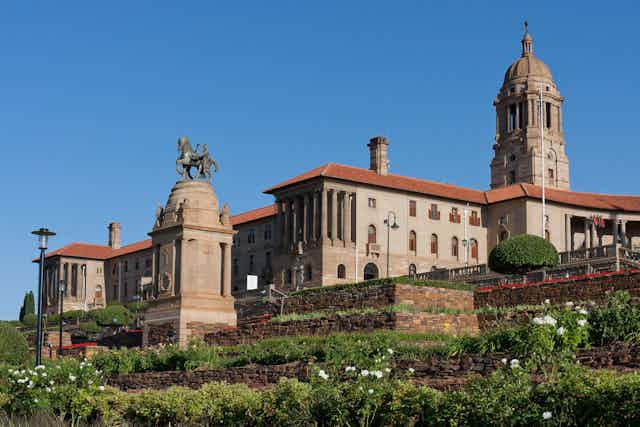Times of political transition bring turmoil and uncertainty. But if the country’s national security is not threatened, minds can focus on what an incoming administration should do to proceed with the business of governance. This should be in the minds of South Africans as the country navigates through a difficult political process.
President Jacob Zuma has been in power for the past eight years. While there were some notable achievements, his period in power was marked by a period of corruption and nepotism during which well connected individuals extracted favours from the Zuma network of associates, the Gupta family being the most obvious cast of characters. This process of state capture was made possible by the president’s lack of moral direction, exemplified by accusations of rape and theft.
The challenge now is to recover a damaged state and a fractious political environment.
The levers of power
The new administration will be composed of a new executive in the form of the newly elected president as head of state. In South Africa’s case, parliament will elect the president who has the authority to appoint political colleagues (mostly trusted friends and allies) to head up departmental portfolios. These appointments collectively make up the cabinet which is responsible for setting overall policy direction.
In a robust democracy a cabinet and its president (the executive) is held accountable by the legislature. Over the past few years parliament’s oversight role went by the wayside, overridden by the overwhelming role of the ruling party.
In South Africa’s post-apartheid period, senior civil servants – directors general and their deputies – have played an equally important role in shaping policy direction. A new administration often sees new senior bureaucrats taking their seats close to their political principals. Those that are replaced either retire or find a place in academia or the private sector, where they are able to add value given experience of the management of the affairs of state.
Assuming this falls into place, what should the new administration do as a matter of priority?
The priorities
Manage the public mood: Political stability remains the bedrock of any successful transition. The most important immediate priority is to offer credible evidence of a competent team in charge. South Africa and the world at large needs to see a strong government taking charge. The recent attempt by the ruling party’s Secretary General, Ace Magashule, to explain Zuma’s recall is a model of how not to manage change.
Stabilise the African National Congress: Perception management should extend to the affairs of the ruling party. The ruling party matters because it determines the composition of government. It deploys loyal cadres to occupy senior positions in government.
In addition, without party unity and public support the outcome of the 2019 national election are unpredictable. A collapsing ruling party (and opportunistic coalition formations will lead to political instability, preventing any new team from achieving much.
The evidence so far of coalition governance (particularly in South Africa’s large metropolitan areas such as Pretoria/Tshwane and Nelson Mandela Bay) does not inspire confidence. . This is largely because South Africa doesn’t have experience of “compromise governance”.
Arguably, a strong and united political opposition might be able to keep a weakened ruling party on its toes, provided disgruntled comrades do not revert to tried-and-tested methods of political thuggery, as experienced in KwaZulu-Natal.
Address the economy: The most difficult challenge for the incoming administration relates to unemployment, poverty and inequality. Unemployment has remained stubbornly high, last count had it at 27.7%, and economic growth has collapsed over the years to less than 1%. Without growth there won’t be a reduction in poverty and inequality.
It’s government’s job to create an enabling environment for stakeholders to invest and grow the economy. It must ensure that citizens develop skills and use them in decent jobs. And social partners can then search for common ground in addressing the country’s developmental deficits.
Strengthen the state: Any new administration will falter if the machinery of the state is unable or unwilling to deliver social services. Addressing crime and lawlessness is also key, as its unchecked cancerous growth undermines and paralyses the national will.
Reassure international partners: a recalibration of the nation’s foreign, trade and security policies and strategies is needed. South Africa is a trading nation and needs partners in Africa and further afield. It needs to invest in peace and stability and its soldiers. And its diplomats and development workers must be professional at their job. This requires a rethink of the instruments of the country’s foreign policy.
All in all, the new administration will have a lot of governance challenges on its plate. It therefore needs to throw its weight behind a consultative process to establish a social and economic compact that will address the challenges of inclusive growth, poverty and inequality. This compact also needs to come up with answers to the question: how do we enable our youth to embrace tomorrow’s complex world of work?

